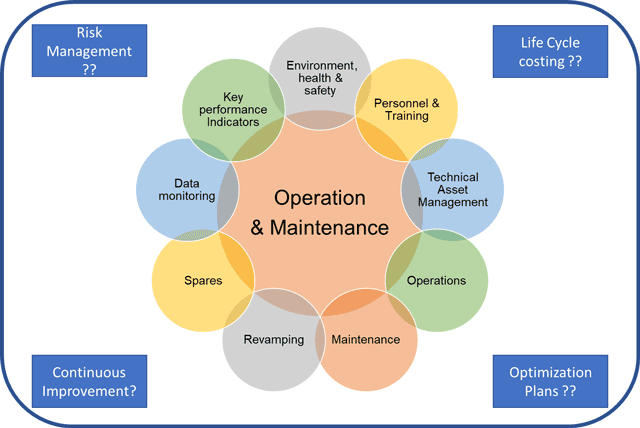“Join the FM world—it is far more than what you may think it is!” Those are the upbeat words of Liz Bishop, an assistant facilities manager for Austin-based tech company Bazaarvoice. And she makes an excellent point—there’s no denying that facilities management is a challenging but rewarding career.

As the business world evolves, so does facilities management. The so-called world of work has undergone dramatic changes in recent times, resulting in enormous shifts regarding the facilities management function. However, in a world of change, there is one constant—essential skills that successful facilities managers will invariably have.
This article will delve into the six timeless skills that every successful facilities manager should have. If you check out specific interviews with leading FM practitioners in Facilities Management Advisor‘s “Faces of Facilities” profile series, you’ll inevitably find such skills, as proven from the quotes cited below.
1. Technical Know-How
It makes sense that facilities managers often commence in technical fields, such as electrical installations, plumbing, or HVAC systems, to name a few. Even if they enter the field from less traditional facilities management avenues, a level of technical know-how will be a core competency for any facilities professional.
The ability to understand technical data is a critically important skill. One example is knowing how to read blueprints. Ty Dupass, a facilities professional for the Community College of Philadelphia, explained how understanding the finer points of blueprints means understanding systems such as sanitary drainage, domestic water distribution, stormwater management, and water-dependent fire protection systems.
2. A Commitment to Learning
Being well educated in the field is an invaluable skill for any facilities manager. An apprenticeship can be particularly helpful in getting on the right professional path. Prince Reed, the facilities manager for DaVita Kidney Care, made this point: “Find a mentor and actually listen to them. There’s nothing worse than good advice wasted. Get input from the people around you. No one likes or respects a know-it-all.”
The ability to keep learning is also important. The aforementioned Ty Dupass, for example, holds an M.S. degree in construction management, as well as credentials with the International Facility Management Association (IFMA).
Being receptive to on-the-job learning is equally invaluable in the industry. As Jessica Bickel, the facilities coordinator for Dallas-based Reece Group USA, put it, “Nothing I learn is wasted. Future challenges could be solved with the skills I learn today.”
3. Respecting Systems
Any worthy facilities manager knows this: the function demands order, repeatability, and sustainable work methods. That is why systems thinking is imperative for any successful manager in the field. For example, contemporary demands regarding workplace productivity mean that the facilities manager must understand ergonomic concerns within the context of health and hygiene, wellness, and quality management systems.
Work order (WO) management is an excellent example of sustainable, practical work systems in progress. It allows a facilities department to make sense of various WOs as they arise by standardizing maintenance workflows and eliminating paperwork. Work schedules can be properly assigned and labor hours tracked. WO management also enhances inventory management—a savvy facilities manager is well aware of this.
4. Understanding Operations & Maintenance (O&M) Management
O&M management can make or break a facilities department. The skilled facilities manager understands the fundamentals and diverse aspects of O&M management. The sheer complexity of O&M can be seen in the diagram below, which details O&M factors at a solar power plant:

The facilities manager has another important task regarding O&M: convincing upper management about its importance. This point was made by Nelson Peña, the FM for the Southeast Region at Sam’s Club, who said, “It is important for company leaders to understand the significance of facilities maintenance because of the exposure it creates to the bottom line. If the company does not invest in maintenance today, it will cost more in the future to maintain an asset.”
5. Legal Savviness
There is hardly a facilities-related task, machine, or process that does not have federal, state, or local laws that govern it. Therefore, a facilities manager must know the various regulations, I-codes, bylaws, and other legal requirements relevant to the facility they oversee.
For example, in the United States, facilities managers must keep abreast of the various regulations and directives issued by the Occupational Safety and Health Administration (OSHA). Failing to do so could result in severe penalties and even the threat of being shut down by the agency.
A further skill that successful facilities managers should possess is the ability to liaise with local authorities regarding applicable codes and pending legislation relevant to their facility.
6. People Skills
Most facilities’ work depends on teams—the ability to effectively manage and oversee people is central to the FM function. The facilities manager must foster teamwork in a (sometimes) unpredictable industry. “By working as a team, you can overcome any challenge over time,” stated Lesley Groff, the senior supervisor of buildings and grounds for UGI Utilities Inc.
The world of work has changed dramatically in recent times, with a greater emphasis on worker respect and development, which affects this profession too. That includes cultivating more interest in the industry among younger workers, in the opinion of Jeff Womack, a U.S. Air Force veteran and FM professional at federal contractor AGEISS Inc.
Parting Thoughts
The FM industry is unique. As Dave Irvin, associate VP of facilities at Florida State University, said, “My favorite part of our industry? We never have a dull day! Just when we believe we’ve seen everything and solved everything, a pandemic, supply chain issues, or the Great Resignation requires our leadership.”
That leadership requires specific skills that offer a highly rewarding career in return.
Bryan Christiansen is the founder and CEO of Limble CMMS. Limble is a modern, easy-to-use mobile CMMS software that takes the stress and chaos out of maintenance by helping managers organize, automate, and streamline their maintenance operations.
BROWSE “FACES OF FACILITIES” INTERVIEW PROFILES HERE.
